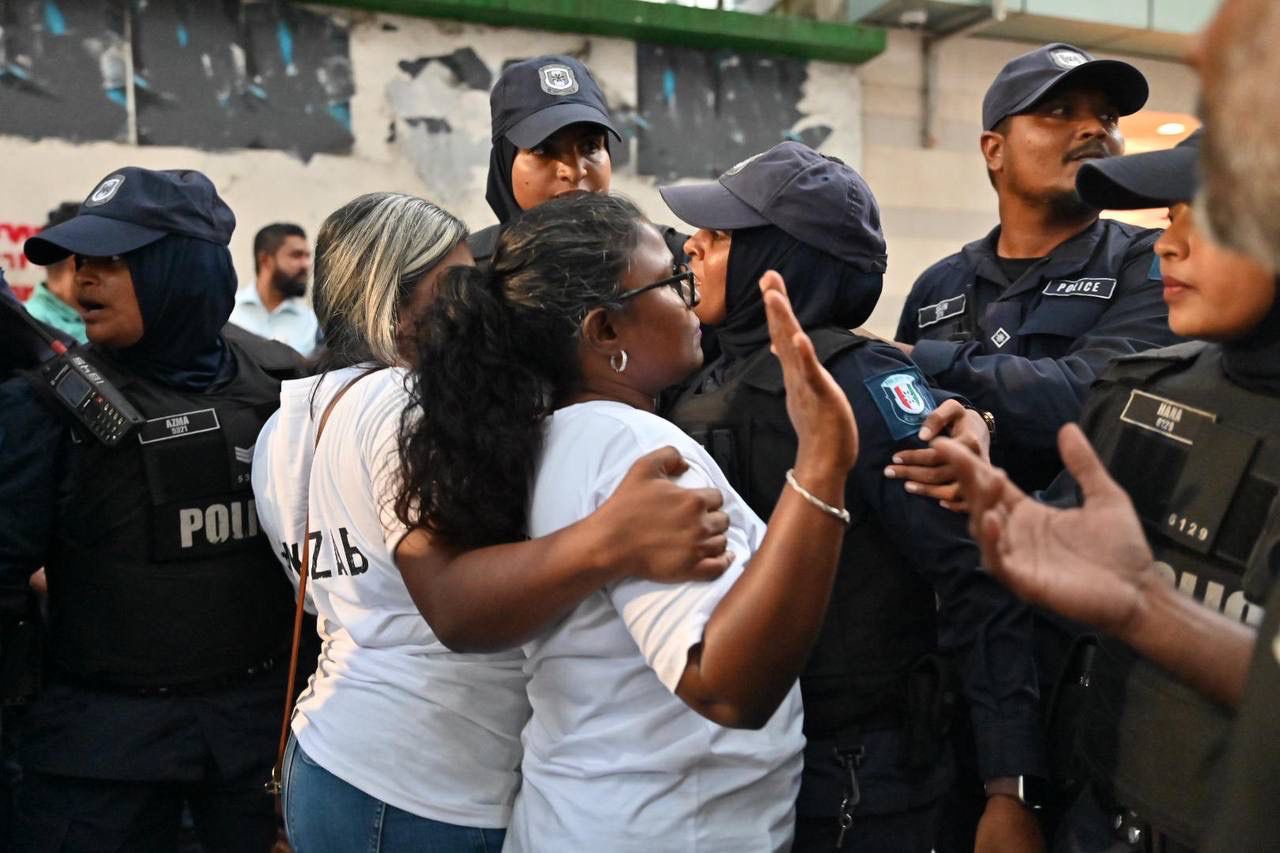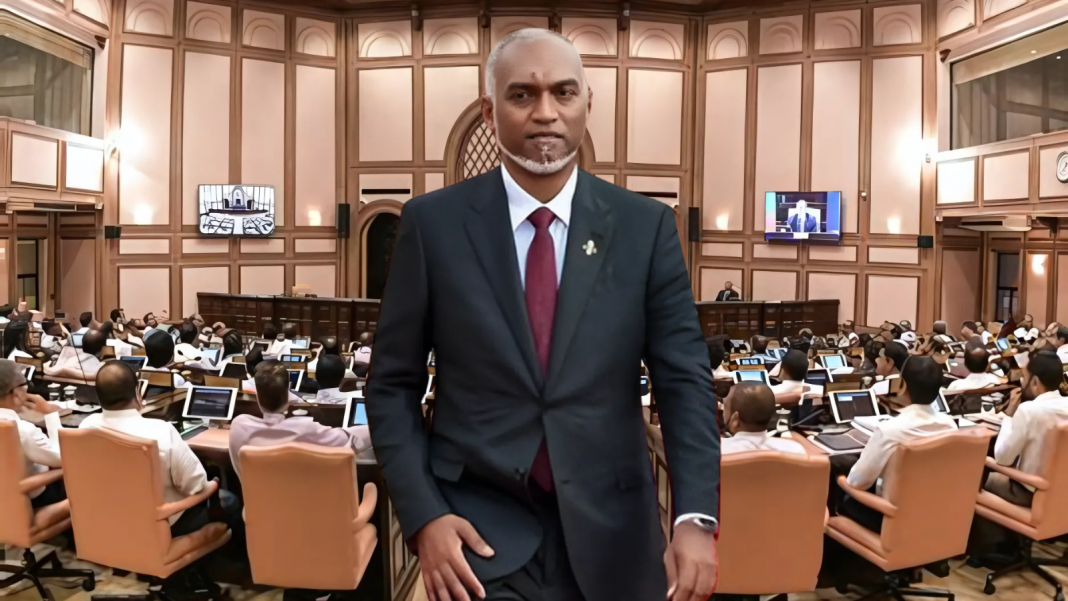The government of President Mohamed Muizzu passed a set of constitutional amendments on Wednesday, without proper public consultation or the transparency that democratic processes demand. The proposed changes have raised concerns about their potential to undermine democratic principles and further consolidate power in the hands of the executive.
The bill, which was passed by a parliament fully under the control of Muizzu’s administration, includes provisions that would force lawmakers to lose their seats if they change political parties or are expelled from their own party. Additionally, the amendments would allow foreign military personnel to be stationed in the Maldives only with parliamentary approval, and they would make it much harder to cede any part of Maldivian territory without the approval of the People’s Majlis.
While these changes may seem procedural on the surface, they are far more alarming when examined closely. The rushed passage of the bill—approved by 78 MPs with only 13 voting against it—came after a morning reading in parliament, followed by immediate approval in the afternoon. The swiftness of the process, with no public debate or consultation, has raised questions about the government’s true motivations.

Opposition members from the Maldivian Democratic Party (MDP) staged a protest outside the parliament, expressing their concern over the speed and lack of transparency in the constitutional amendment process. They argued that such significant changes should not be rushed through without a proper examination of their implications on the rights and freedoms of citizens. Pro-government activists responded by obstructing the protest, and even high-ranking government officials were seen leaving their official duties to confront the demonstrators, a move that only escalated tensions.
source: X
.
.
.
.
.
.
.
..
.
.
The proposed amendments are also concerning because they grant the president unchecked power to formulate national development policies and plans. This centralization of authority contradicts the principles of decentralization, which have been an important part of the Maldives’ democratic journey. The Decentralization Act was designed to give local councils a say in decision-making, particularly in the development of their communities. Granting the president sole power over national policies undermines the role of these councils and limits the opportunities for public participation in crucial decisions affecting their lives.
Source: Raajje
Perhaps the most alarming part of the bill is the provision that would allow MPs to lose their seats if they change parties or are expelled from their political party. This move is seen by critics as a blatant attempt to silence opposition voices and tighten the government’s grip on parliament. It limits MPs’ ability to represent their constituents freely, forcing them into a political straightjacket where loyalty to the party is valued over their duty to the people who elected them. It also removes the option for MPs to vote based on their conscience, raising serious concerns about corruption and the erosion of political integrity.
Civil society organizations, including Transparency Maldives, have expressed their deep concern over the rushed passage of the amendments. In a statement, they condemned the lack of public consultation and warned that the amendments were passed in direct contradiction to the constitutional principles of transparency and public participation. They argued that such changes could undermine the integrity of the legislative process and set a dangerous precedent for future government actions.
This rapid constitutional amendment process, which bypasses proper procedures and transparency, is a worrying step toward consolidating power and undermining democratic values. The government’s actions show a clear disregard for the principles of open dialogue, public participation, and the democratic process. If the Maldives is to maintain its status as a democratic nation, it is imperative that constitutional changes are made with the utmost transparency and in full consultation with the public.
As this bill moves forward, it is crucial for the people of the Maldives to remain vigilant and demand that their representatives uphold their constitutional rights and freedoms. The integrity of the nation’s democracy depends on it.


















